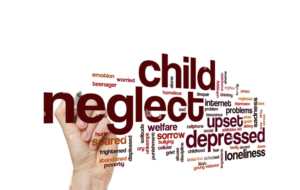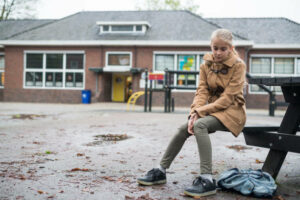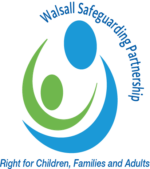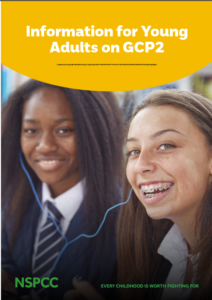Neglect

What Neglect means
Do you know what Neglect means. Look below to find out more!!!!

Neglect is when the people taking care of you like a parent, carer, family friend or even a foster carer don’t provide you with the things you need, such as food, somewhere to live, love, guidance and to feel safe.
Every child and young person needs:
- To feel loved and cared for.
- To receive praise and encouragement.
- Have enough to eat and drink.
- Clean and warm clothes, and clothes that fit.
- A warm, dry and cozy place to sleep.
- Support with your education.
- To be taken to the doctors or dentists for health checks, or when you’re unwell or hurt.
- To be supervised at home and not left home alone for long periods of time.
- To be kept safe.
- To feel safe.
Children and young people need all of these things to help them to grow up feeling happy, healthy, secure, loved and cared about.
You may think that you need the latest toy, game or mobile phone etc, but these are things you want, not what you need.
Unfortunately, sometimes the people looking after you find parenting hard because of other issues e.g. drugs, alcohol, mental health, domestic abuse, poverty or homelessness. This can stop them from providing you with all the things you need.
Whatever is happening remember it is NOT your fault. If any of this is happening to you or someone you know then talk to an adult you trust e.g. a teacher at school, club leader. If you don’t feel comfortable talking to someone you know then you can call Childline for free:
Childline – 0800 1111
Childline is a service provided by the NSPCC
Once you have shared what is happening for you, or if someone working with your family feels there are some worries around Neglect then it is likely they will complete a Graded Care Profile 2 (GCP2) assessment with you and your family.
See below for further information!
Neglect & Graded Care Profile 2 (GCP2)
Graded Care Profile 2 – Yes this assessment tool has an unusual name.
Basically, it means that the person working with you and your family would talk to you about the following 4 areas:
1. Physical care
This will include looking at your home, clothing, food, hygiene and health.
e.g. Food – ensuring that you have enough food to eat and have a good healthy diet.
2. Safety
Looking at safety in the home, garden, to and from school, online, safety in traffic and safety where parent/carer is not around.
e.g. Baby – checking their are stairgates for your safety.
Child or young person using the internet – ensuring that there are safety measures in place to keep you safe online. This could mean parental locks or checking your mobile phone. Having your computer in a family space.
3. Emotional Care
This would look at how you and your parent/carers get along, your relationships, and their responses to you. Also, ensuring that you receive support, warmth and affection.
e.g. ensure that you receive praise and rewards for doing well. Hugs, kisses and being told that you are loved.
4. Development Care
This would look at support with education, support in attending groups/sports you are interested in, parent/carer getting to know your friends, outings and celebrations. Also, that appropriate rules, boundaries and consequences are in place.
e.g. Teenager – parent/carer gets to know your friends and where you are going. You are given a time to return home and if you don’t return at this time there would be consequences in place to address this.
Younger children – have access to toys, games and books to help them learn and grow.
The person would work with you and your family to get a good understanding of what life is like for you.
You get a chance to share your views and have your voice heard.
This would help identify what is going well and what you and your family may need support with.
GCP2 should help improve your family life.

